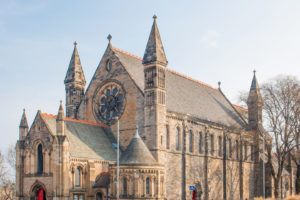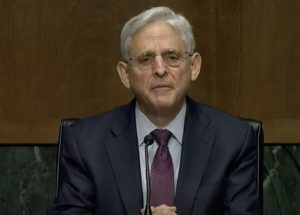House report accuses FBI of abusing power to investigate Catholics, ‘violating the religious liberties of millions’
A new House report alleges the FBI investigation into so-called “traditional” Catholics was an abuse of power.
The report, first obtained by Fox News, said there was “no legitimate basis”…

A new House report alleges the FBI investigation into so-called “traditional” Catholics was an abuse of power.
The report, first obtained by Fox News, said there was “no legitimate basis” for a memo originating in the FBI’s Richmond office that sought to spy on Catholics over worries they could be “racially or ethnically motivated violent extremists” (RMVE).
RMVE is the FBI’s euphemism for “domestic terrorist.”
“The Committee and Select Subcommittee’s [on the Weaponization of the Federal Government] oversight shows that the FBI abused its counterterrorism tools to target Catholic Americans as potential domestic terrorists,” said the committee report.
In February 2023, the committee began its investigation of the FBI’s effort to spy on Catholics when a whistleblower came forward to report the law enforcement agency’s Richmond office.
According to the report, the committee discovered the FBI’s proposal to put undercover agents into Catholic organizations stemmed from the social media posts of just one potential FBI target.
“The [FBI] analysts examined the subject’s social media, where he ‘self-identified’ as a ‘radical traditionalist Catholic Clerical Fascist,’” said the House report.
The FBI then went on to interview a priest and a choir director at a Richmond-area Catholic church.
Using intelligence gathered on Catholics from cases in Portland and Milwaukee, and intelligence gathered by an undercover FBI agent, the FBI’s Richmond office then proposed “developing sources among the Catholic clergy and church leadership” to spy on its members, according to the House report.
The FBI also used biased intelligence sources, the committee also found, such as the Southern Poverty Law Center (SPLC), which has slandered traditional Catholics, calling them “the largest single group of serious antisemites in America.”
In addition to the SPLC, the FBI relied on progressive periodicals such as Salon and The Atlantic for citations on the alleged dangers of traditional Catholics in the memo.
The ordeal undercuts the FBI’s contention that it is “unbiased and politically neutral,” an idea that even its own agents don’t take seriously.
One field agent in the Milwaukee office responded to the memorandum by posting: “Is anyone really asking for a product like this? Apparently we are at the behest of the SPLC …”
Another agent replied, “Yeah, our overreliance on the SPLC for hate designations is … problematic.”
Despite concerns about the objectivity of the memo inside the agency, it wasn’t until the media backlash began as the whistleblower report became public that the FBI ultimately withdrew the memo, said the committee.
“Most concerning of all, without the disclosure of the brave whistleblower, the Richmond memorandum would still be operative in FBI systems, violating the religious liberties of millions of Catholic Americans,” the House report concluded.



